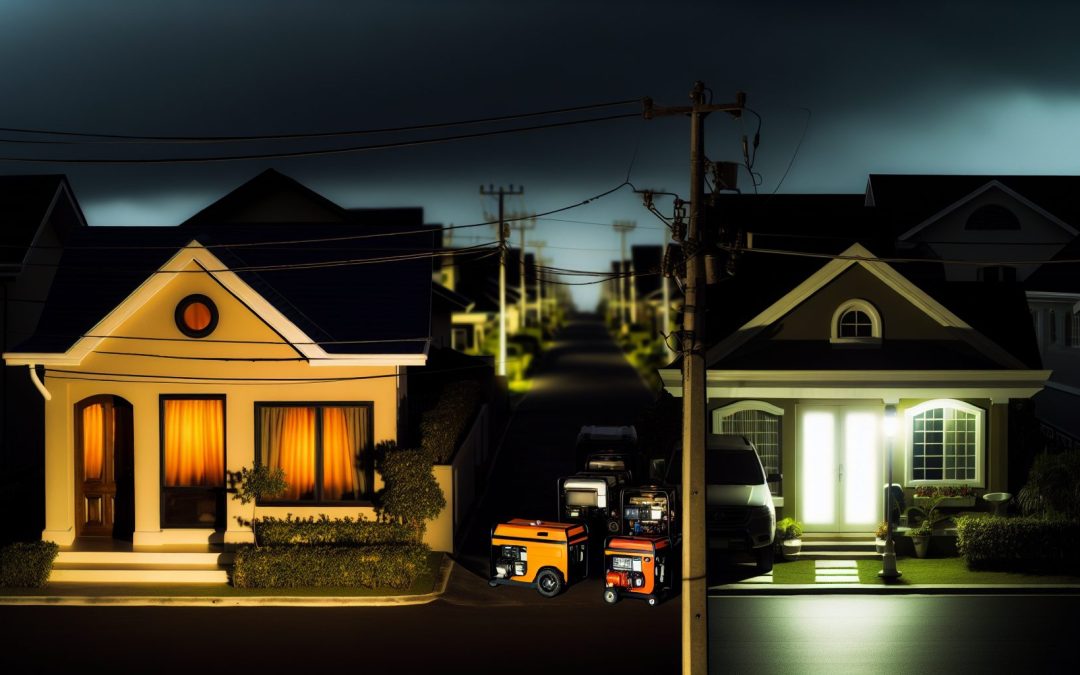Power outages can disrupt daily life, affecting both residential and commercial properties. In this article, we will explore three nightmare scenarios that can arise without a generator and provide practical solutions to avoid these issues, ensuring safety and continuity for your home or business.
The Impact of Power Outages on Residential Properties
Power outages can have dire consequences for residential properties in Delaware and Chester County. A sudden blackout can lead to spoiled food in refrigerators, forcing families to throw away groceries and incur unnecessary costs. Without heating or cooling, homes can become uninhabitable, putting vulnerable family members at risk. Moreover, electronic devices can be damaged, leading to costly repairs or replacements. The emotional strain on families is profound; uncertainty and discomfort combine to create stress in already challenging circumstances. Owning a generator can prevent these scenarios by ensuring an uninterrupted supply of power, providing peace of mind and safety for families.
The Risk of Business Interruptions Without Backup Power
Power outages can be devastating for businesses, particularly in Delaware and Chester County, where commercial properties rely heavily on consistent electricity. For instance, a restaurant could face significant losses as perishable goods spoil without refrigeration, leading to hefty financial burdens. Retail stores risk losing valuable customers if they cannot process transactions. Investing in a generator ensures uninterrupted operations, preserves inventory, and maintains customer trust, safeguarding revenue and productivity.
Safety Issues Arising from Extended Power Loss
Prolonged power outages pose significant safety risks that can escalate into severe hazards for both homes and businesses. Without a generator, unregulated heating sources—such as candles or portable stoves—can lead to fires, while complete darkness increases the likelihood of accidents. Moreover, security systems that rely on electricity become inoperable, making properties vulnerable to intrusions.
Emergency services face considerable challenges during blackouts; communication systems may fail, hampering response times. Generators provide essential power to alarm systems and emergency lighting, ensuring a safer environment. By maintaining operational safety features, generators not only protect physical assets but also safeguard lives during crises, illustrating their critical role in emergency preparedness.
Financial Implications of Not Having a Generator
Experiencing a power outage without a generator can lead to significant financial repercussions. The cost of spoiled food can accumulate quickly, especially if your refrigerator and freezer go dark. Additionally, sensitive appliances may incur damage due to sudden surges or irregular power restoration. For businesses, the potential loss in revenue during downtime is critical, emphasizing that an initial investment in a generator not only safeguards assets but also provides peace of mind through severe weather seasons. This proactive approach can save you from more extensive financial strain in the long run.
Taking the First Steps Toward Generator Ownership
When considering generator ownership, assess your power needs to ensure sufficient wattage for essential appliances or business operations. Determine whether you prefer a portable generator for flexibility or a standby unit for automatic power restoration. Always consult with a professional for installation, and prioritize routine maintenance, including oil changes and battery checks, to prolong its lifespan and reliability during outages.
Conclusions
Owning a generator can be crucial in navigating unexpected power outages. By understanding the potential risks and preparing accordingly, you can protect your family and business from disruptions. Don’t wait for the next blackout; consider investing in a generator today to ensure peace of mind and uninterrupted power.


Recent Comments